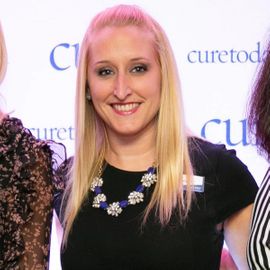- About Us
- Advertise / Support
- Editorial Board
- Contact Us
- CancerNetwork.com
- TargetedOnc.com
- OncLive.com
- OncNursingNews.com
- Terms & Conditions
- Privacy
- Do Not Sell My Information
- Washington My Health My Data
© 2025 MJH Life Sciences™ and CURE - Oncology & Cancer News for Patients & Caregivers. All rights reserved.
My Gene Counsel White Paper Reveals Need for Patient Advocacy in Genetic Testing Follow-Up

Kristie L. Kahl is vice president of content at MJH Life Sciences, overseeing CURE®, CancerNetwork®, the journal ONCOLOGY, Targeted Oncology, and Urology Times®. She has been with the company since November 2017.
CURE spoke with an expert on how patients can better advocate for themselves when it comes to genetic testing and its follow-up.
While genetic testing can be complex to begin with, having patients advocate for themselves to have these results re-interpreted over time — given the fact that genetic findings are ongoing – is key.
With this, My Gene Counsel recently released a white paper addressing this exact issue.
In conjunction with National Hereditary Breast and Ovarian Cancer (HBOC) Week, recognized from Sept. 29, 2019 to Oct. 5, 2019, and National Previvor Day, celebrated Oct. 2, 2019, CURE spoke with lead author Meagan B. Farmer, genetic counseling business manager at My Gene Counsel, about the white paper’s results and how patients can better advocate for themselves when it comes to genetic testing and its follow-up.
CURE: Why is it critical for patients to know that genetic test results need to be interpreted correctly to help incorporate information about genetic risk for disease into their medical plans?
Farmer: There's a lot of attention on genetic testing right now and trying to test as many people as possible as appropriate. And that's important, but what people do with those results is really what matters. When we find out someone is at a higher risk for cancer, we want to make sure that those tests are understood — that we know what the level of risk is for specific cancers and that patients and their providers know what to do next.
What prompted the white paper?
Well, I'm a genetic counselor. And when someone would come back, I would tell them (what their test results meant), but then I would always say, “Please call me back, because this information changes over time as we learn more, and I really want to keep you up-to-date with the with the best information.” And they never call me back. As these new studies came out and we learned more about these genetic conditions, and also as more guidance was given about what to do with the results, it was it was really sad to think that thousands of patients that we've seen before never get that (new) information.
What is the main takeaway of the white paper for patients?
Genetic testing is just the beginning. I think some people think that getting genetic testing, getting your results and being identified as high risk for cancer is the end. But when it comes to precision medicine, getting your genetic test results is the beginning of the journey. Next, you have to stay up to speed on what those results mean for your health and for your family's health over the long term. Otherwise, it's not really precision medicine.
How can patients better advocate for this with their doctors?
They can ask their doctors, “I have had genetic testing two years ago, what's new, with respect to my genetic findings? What are the new disease risks? What are the most up-to-date medical recommendations?” Then their provider potentially can help them with that or they can connect them with a genetic counselor who can help them with that.
Anything we haven’t touched upon?
The challenge here is that patients really have to advocate for themselves. It’s a lot to expect a physician that might spend 20 minutes with a patient, and who may take care of hundreds or thousands of patients, to keep up-to-date on all of these genes and beyond and then to understand what the latest information is. So, we have to give clinicians more tools so that they can better support their patients.
Related Content:



